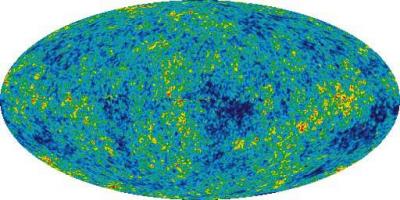Consder the classic omnipotence paradox, expressed as a logical conundrum thus:
Posit an omnipotent God who created the Universe. Can God create a stone He cannot lift?
If the answer is yes, then there exists a stone that God cannot lift, hence God is not omnipotent. If the answer is no, then God cannot do something, and hence God is not omnipotent.
Now, this is a bit of a problem for some as far as God’s existence is concerned (of course you can have degrees of omnipotence, but as far as the major religions go omnipotence is part of the job description).
However, the question itself is logically flawed, akin to asking “What color are the eyes of the King of the United States?” The reason for the flaw is because we are trying to shoehorn certain biased meanings into the words “stone”, “lift” and “cannot”.
Consider first the stone. The paradox doesn’t invoke more thorny creations like an equal to God (now, that would be a philosophical head-scratcher). It’s just about a stone. So, what is a stone? It’s a physical object, comprised of N ordinary bosons, and of radius R. Nothing more complex than that (though presumably at some very large radius R it would collapse under it’s own weight and become a neutron star). But let’s be really generous and rephrase the question, “Can God create a black hole He cannot lift?”
No, let’s turn our attention to lifting. For us to lift a black hole is sort of meaningless, but if you consider that to lift something is merely to manipulate it, then we can generalize further to “Can God create a black hole he cannot manipulate?”
Now by this point the Dawkins acolyte will accuse me of having moved the goalposts. “Surely your omniscient God could create a big stone, immune to gravitational forces which would cause its collapse but not immune to an external gravitational field which exists solely to provide something against which to literally lift it?” I suppose if you insist that this is different from what I described in my reformulation above, we can agree to disagree, because frankly creating a supermassive black hole (and just how masive, I am about to explore further) in an instant and then shoving it around seems pretty much just as miraculous to me. Then again, as a believer in a religious faith, I’mnot exactly addressing the paradox with an open mind, now, am I?
So let us continue. The last hurdle is the word, “cannot”. For a black hole to be so massive as to essentially be impossible to manipulate, it must be so large as to not provide any room for it to be manipulated. The physical manipulation of an object in N-dimensional space involves rotation about and translation along the N physical axes. Since God created the Universe of radius U, and the black hole is radius R, then the only way the black ole cannot be manipulated is if R = U – in essence, if the universe itself contains only the black hole (or the stone, if you insist) and nothing else.
Now, the question has reduced down to, Can God create the Universe? To which we already know the answer is yes, by virtue of the Posit above.
Alternatively, we could just be talking about a normal piece of rock, say the size of a softball, weighing less than a pound, and unremarkable in every way except that it has also been assigned a property that nothing (including God himself) can move it. This too is a meaningless paradox, though for a different reason than the one above. In essence, what does it mean to say that god cannot move it? God can choose not to move it, but since God is omnipotent, the definition of that power is that God can do whatever God wants to do. Defining omnipotence as “the ability to not do something” is not omnipotence but limitation.
To put it plainly, anything God creates, God can uncreate. Perhaps God can relinquish that power if God so desired; the ability to relinquish it would fall within omnipotence, but once relinquished, God would no longer be omnipotent. That doesn’t mean God wasn’t omnipotent before choosing to do so, though. In a sense, thats what this Interpretation 2 is asking: Can God choose to abdicate being God? The answer is probably yes, but that’s an affirmation of God’s present omnipotence, not a denial of it. Creating a stone He could not lift? No, he “can’t” do that, anymore than he can’t not be omnipotent while He is omnipotent.
That said, if you think that faith can be discussed with logic, then you’re kind of missing the point. But Douglas Adams said it best, which is rather ironic given how fierce an atheist he was.
This is what I do sometimes when I am procrastinating on doing something else much more important.



